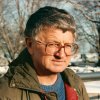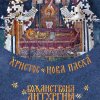–Я–Њ –Ј–∞–≤—А—И–µ—В–Ї—Г –Ь–∞—В–µ–Љ–∞—В–Є—З–Ї–µ –≥–Є–Љ–љ–∞–Ј–Є—Ш–µ –Р–ї–µ–Ї—Б–∞ –Ь–Є–ї–Њ—Ш–µ–≤–Є—Ы —Ш–µ –љ–∞—Б—В–∞–≤–Є–Њ —Б—В—Г–і–Є—Ш–µ –Љ–∞—В–µ–Љ–∞—В–Є–Ї–µ –љ–∞ –∞–Љ–µ—А–Є—З–Ї–Њ–Љ –Я—А–Є–љ—Б—В–Њ–љ—Г. –°–≤–∞–Ї–Є –±–Њ—А–∞–≤–∞–Ї —Г –С–µ–Њ–≥—А–∞–і—Г –Ї–Њ—А–Є—Б—В–Є –і–∞ —Б–µ –≤–Є–і–Є —Б–∞ –і—А—Г–≥–Њ–≤–Є–Љ–∞ –Є–Ј –≥–µ–љ–µ—А–∞—Ж–Є—Ш–µ –Є –і–∞ –њ–Њ–Љ–Њ–≥–љ–µ —И–Ї–Њ–ї–Є –Ї–Њ—Ш—Г —Ш–µ –њ–Њ—Е–∞—Т–∞–Њ.
–Ш–Ј–Љ–µ—Т—Г –Ъ–µ–Љ–±—А–Є—Я–∞, –Ь–Ш–Ґ-–∞ –Є –Я—А–Є–љ—Б—В–Њ–љ–∞, –Њ–і–∞–±—А–∞–Њ —Ш–µ –Я—А–Є–љ—Б—В–Њ–љ. –Ъ–∞–ґ–µ –і–∞ —Б–µ —В—Г —Г—З–Є –љ–∞—Ш–±–Њ—Щ–∞ –Љ–∞—В–µ–Љ–∞—В–Є–Ї–∞.
"–Я—А–≤–∞ –≥–Њ–і–Є–љ–∞ –љ–∞ –Я—А–Є–љ—Б—В–Њ–љ—Г —Ш–µ —Ш–∞–Ї–Њ –Є–љ—В–µ—А–µ—Б–∞–љ—В–љ–∞. –Я–Њ—Б–µ–±–љ–Њ –Ј–∞—В–Њ —И—В–Њ —Ш–µ —Б–∞–і –њ—А–µ–Ї–Є–љ—Г—В–∞ –Њ–≤–Њ–Љ –њ–∞–љ–і–µ–Љ–Њ—Ш–Њ–Љ, –њ–∞ —Б–Љ–Њ –і—А—Г–≥—Г –њ–Њ–ї–Њ–≤–Є–љ—Г –і—А—Г–≥–Њ–≥ —Б–µ–Љ–∞—Б—В—А–∞ –Є–Љ–∞–ї–Є –Њ–љ–ї–∞—Ш–љ –Є —Б–≤–µ –Є—Б–њ–Є—В–µ —Б–Љ–Њ –њ–Њ–ї–∞–≥–∞–ї–Є –Њ–љ–ї–∞—Ш–љ, —В–∞–Ї–Њ –і–∞ —Ш–µ —В–Њ –±–Є–ї–Њ —Ш–µ–і–љ–Њ –Ј–∞–љ–Є–Љ—Щ–Є–≤–Њ –Є—Б–Ї—Г—Б—В–≤–Њ. –Р–ї–Є –Љ–Є—Б–ї–Є–Љ –і–∞ —Б—Г —Г—Б–ї–Њ–≤–Є –±–Є–ї–Є —Д–µ—А. –£ —В–Њ–Љ —Б–Љ–Є—Б–ї—Г –і–∞ —Б–Љ–Њ —Б–≤–Є –Є–Љ–∞–ї–Є –њ–Њ–і—Ш–µ–і–љ–∞–Ї–µ —Г—Б–ї–Њ–≤–µ —Г—З–µ—Ъ–∞", –Ї–∞–ґ–µ –Р–ї–µ–Ї—Б–∞ –Ь–Є–ї–Њ—Ш–µ–≤–Є—Ы.
–Э–∞—А–∞–≤–љ–Њ, –њ–Њ–ї–Њ–ґ–Є–Њ —Ш–µ —Б–≤–µ –Є—Б–њ–Є—В–µ –Є–Ј –њ—А–≤–µ –≥–Њ–і–Є–љ–µ. –Ю–±—Ш–∞—И—Ъ–∞–≤–∞ –Ї–∞–Ї–Њ –Є–Ј–≥–ї–µ–і–∞ —Ш–µ–і–∞–љ –і–∞–љ –љ–∞ —Д–∞–Ї—Г–ї—В–µ—В—Г.
"–Ґ–Њ —Ш–µ —Ш–µ–і–∞–љ –Ї–∞–Љ–њ—Г—Б –љ–∞ –Ї–Њ–Љ–µ —Б—В–µ –Њ–і –Љ–µ–љ–Ј–µ –њ–µ—В –Љ–Є–љ—Г—В–∞ —Е–Њ–і–Њ–Љ, –Њ–і —Г—З–Є–Њ–љ–Є—Ж–µ –Є—Б—В–Њ —В–Њ–ї–Є–Ї–Њ, –Љ–∞–ї—В–µ–љ–µ —Ж–µ–Њ –і–∞–љ –Є —Ж–µ–Њ –ґ–Є–≤–Њ—В –≤–∞–Љ —Б–µ –њ—А–µ—В–≤–∞—А–∞—Ш—Г –љ–µ–Ї–∞–Ї–Њ —Г —В–∞—Ш —А–∞–і –Є —В–Њ —Г—З–µ—Ъ–µ. –¶–µ–ї–∞ —Б–Є—В—Г–∞—Ж–Є—Ш–∞ —Ш–µ —В–Њ–ї–Є–Ї–Њ –Є–љ—В–µ–≥—А–Є—Б–∞–љ–∞, —В—Г —Б—Г –Є —З–∞—Б–Њ–≤–Є –Є –њ—А–Њ—Д–µ—Б–Њ—А–µ –Љ–Њ–ґ–µ—В–µ –і–∞ —Б—А–µ—В–љ–µ—В–µ –Є—Б–њ—А–µ–і —Б–≤–Њ—Ш–µ —Б–њ–∞–≤–∞–Њ–љ–Є—Ж–µ –Є –≥–і–µ –≥–Њ–і, —В–∞–Ї–Њ –і–∞ –Љ–Є —Б–µ —З–Є–љ–Є –і–∞ —Ш–µ —В–Њ —Ш–µ–і–∞–љ —Б–Є—Б—В–µ–Љ –њ–Њ—В–њ—Г–љ–Њ –њ–Њ—Б–≤–µ—Ы–µ–љ —Г—З–µ—Ъ—Г", –Є—Б—В–Є—З–µ –Ь–Є–ї–Њ—Ш–µ–≤–Є—Ы.
–°–≤–∞–Ї–Є –±–Њ—А–∞–≤–∞–Ї —Г –С–µ–Њ–≥—А–∞–і—Г –Ї–Њ—А–Є—Б—В–Є –і–∞ —Б–∞—З—Г–≤–∞ –Ї–Њ–љ—В–∞–Ї—В —Б–∞ —И–Ї–Њ–ї–Њ–Љ –Є –і–∞ –њ–Њ–Љ–Њ–≥–љ–µ.
"–Я–∞ —Б–∞–і –Ї–∞–і–∞ —Б–∞–Љ —Б–µ –≤—А–∞—В–Є–Њ —Г–Ј–µ–Њ —Б–∞–Љ –і–∞ –њ–Њ–Љ–Њ–≥–љ–µ–Љ –Љ–∞–ї–Њ –Њ–Ї–Њ —Б–Љ–Є—И—Щ–∞—Ъ–∞ –Ј–∞–і–∞—В–∞–Ї–∞ –Ј–∞ –Ъ—Г–њ –Ь–∞—В–µ–Љ–∞—В–Є—З–Ї–µ –≥–Є–Љ–љ–∞–Ј–Є—Ш–µ. –Ъ–∞–Ї–Њ —Б—Г –љ–µ–Ї–∞–і–∞ —Щ—Г–і–Є —Б–Љ–Є—И—Щ–∞–ї–Є –Ј–∞–і–∞—В–Ї–µ –Ј–∞ —В–∞–Ї–Љ–Є—З–µ—Ъ–∞ –љ–∞ –Ї–Њ—Ш–∞ —Б–∞–Љ —Ш–∞ –Є—И–∞–Њ, –Њ–љ–і–∞ —В–∞–Ї–Њ —Б–∞–і —Ш–∞ —Б–Љ–Є—И—Щ–∞–Љ –Ј–∞ –Њ–≤–µ –Љ–ї–∞—Т–µ –љ–∞—А–∞—И—В–∞—Ш–µ –Є –Љ–Є—Б–ї–Є–Љ –і–∞ —Б–µ —В–Њ –љ–µ–Ї–∞–Ї–Њ –Њ–Ї—А–µ—Ы–µ, –≤—А–∞—Ы–∞–Љ–Њ –і—Г–≥", –љ–∞–≤–Њ–і–Є –Ь–Є–ї–Њ—Ш–µ–≤–Є—Ы.
–Ъ–∞–ґ–µ –і–∞ —Ш–µ –Я—А–Є–љ—Б—В–Њ–љ –Ј–±–Њ–≥ –∞–Ї—В—Г–µ–ї–љ–µ –Ј–і—А–∞–≤—Б—В–≤–µ–љ–µ —Б–Є—В—Г–∞—Ж–Є—Ш–µ –Њ—Д–Њ—А–Љ–Є–Њ –Ї–Њ–Љ–Є—В–µ—В –Ї–Њ—Ш–Є –±–Є —В—А–µ–±–∞–ї–Њ –і–∞ –Њ–і–ї—Г—З–Є –і–∞ –ї–Є —Б–µ —Б—В—Г–і–µ–љ—В–Є –≤—А–∞—Ы–∞—Ш—Г –Є–ї–Є –љ–µ. –Ю–і–≥–Њ–≤–Њ—А –±–Є —Г—Б–Ї–Њ—А–Њ —В—А–µ–±–∞–ї–Њ –і–∞ —Б—В–Є–≥–љ–µ.
–Ш–Ј–≤–Њ—А: –†–Ґ–°





